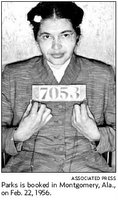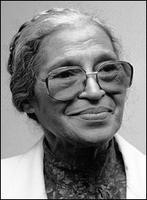Readers Write: Self-Control
From The Sun Magazine "Self-Control"
I’D ALWAYS CONSIDERED MYSELF A
model of self-control. I didn’t eat too
much, drink too much, or spend too
much. I never called in sick at work or
let my finances get out of hand. I was
punctual, reliable, and always there for
friends and family.
Then I met my boyfriend. Suddenly all
those things that once had been important
now seemed minor in comparison
to him. I left my husband and our giant
house, and gave up my possessions, my
security, and my friends. My orderly existence
quickly vanished.
I don’t regret a thing; I’ve become a
new person in the process.
My boyfriend, though, has a lot more
self-control. He is unable to leave his wife
for me.
Name Withheld




